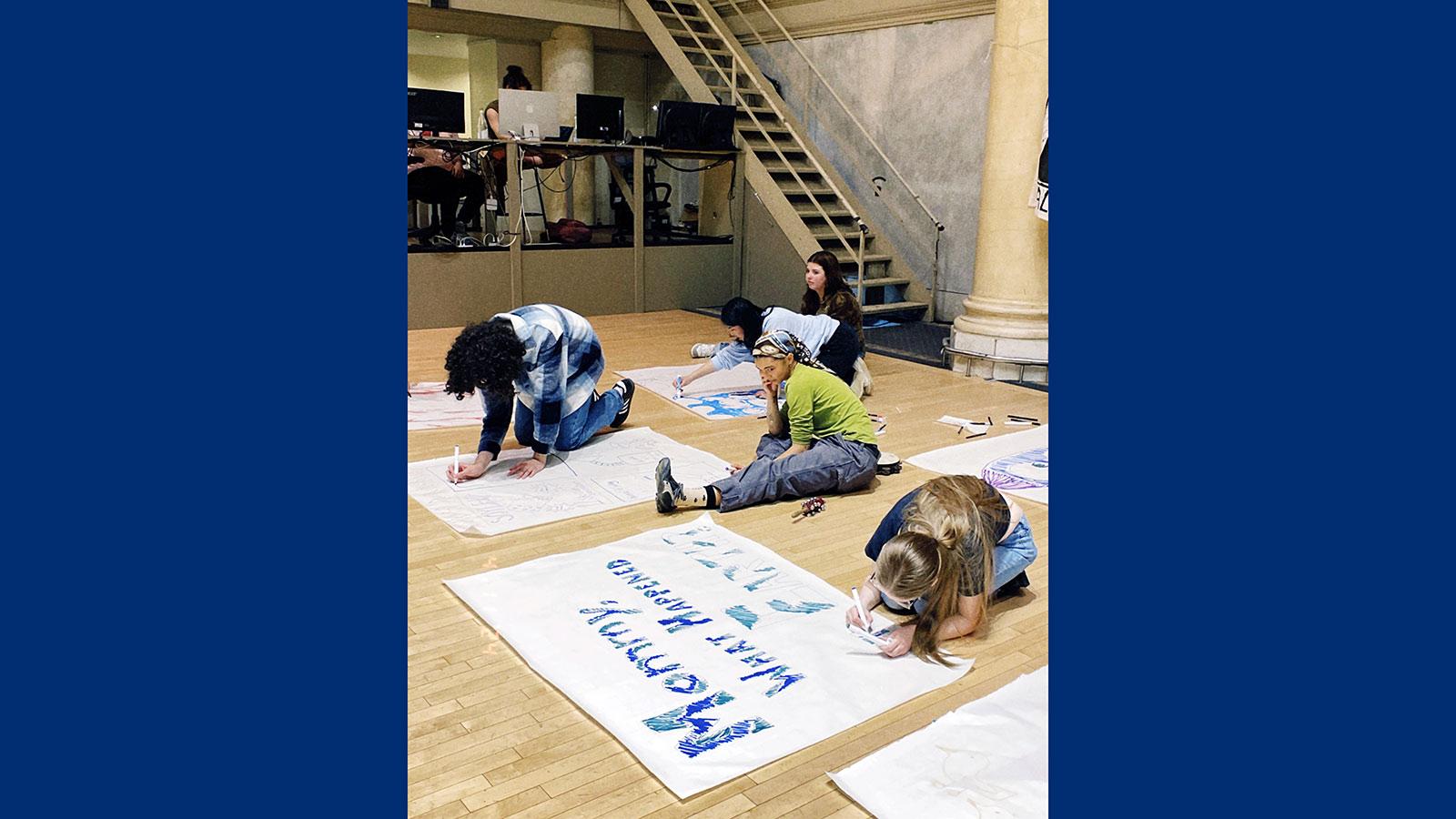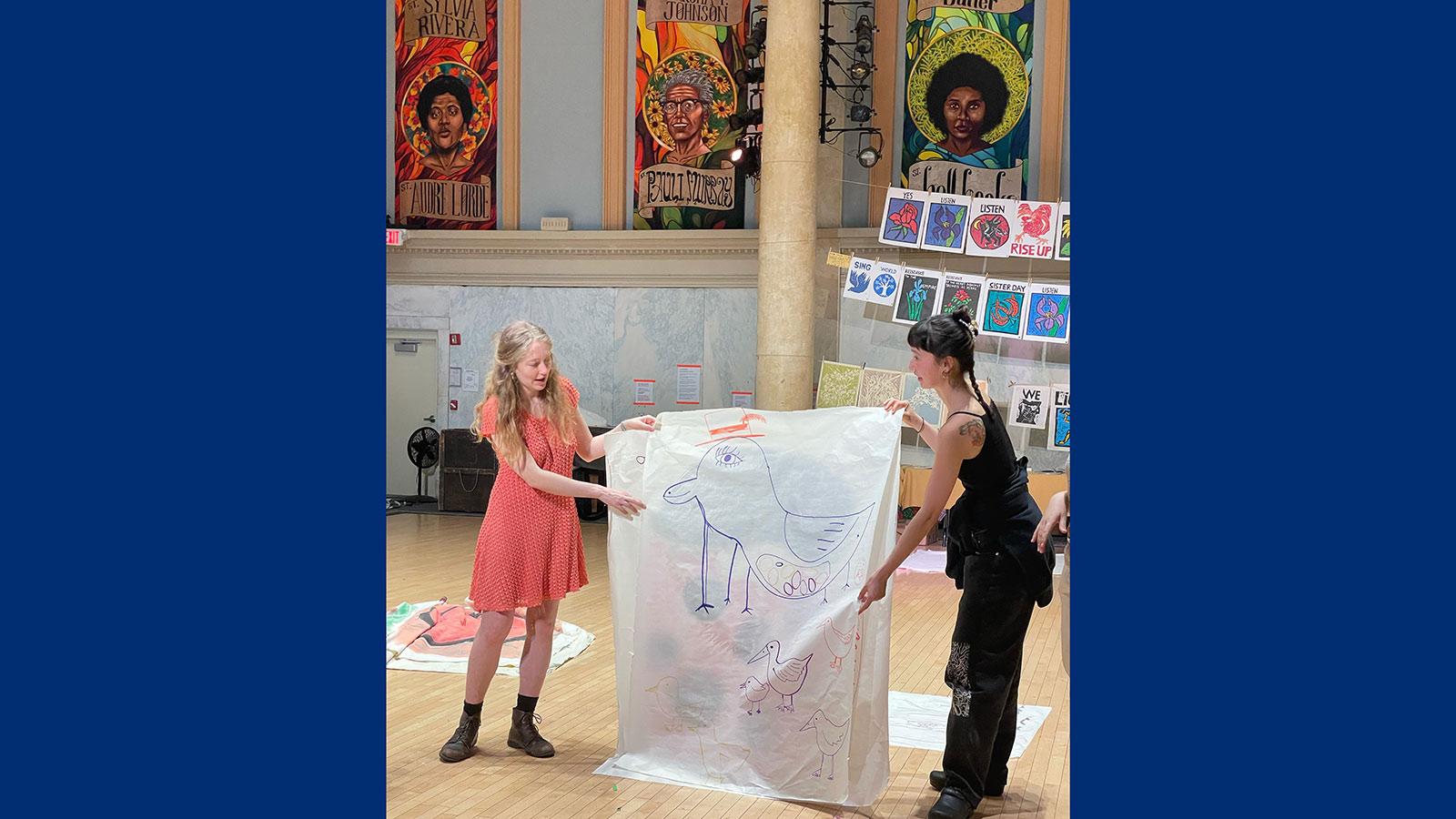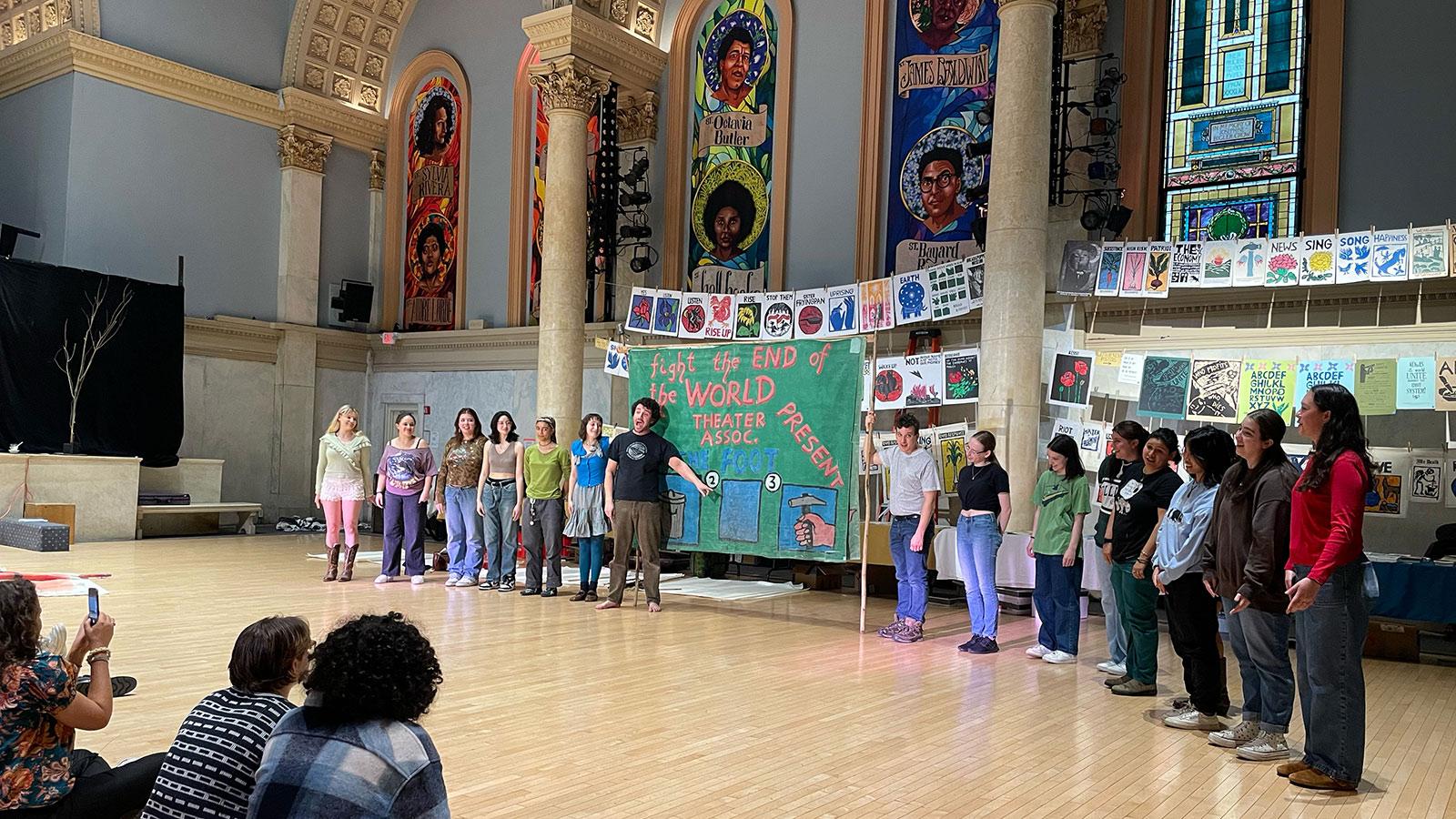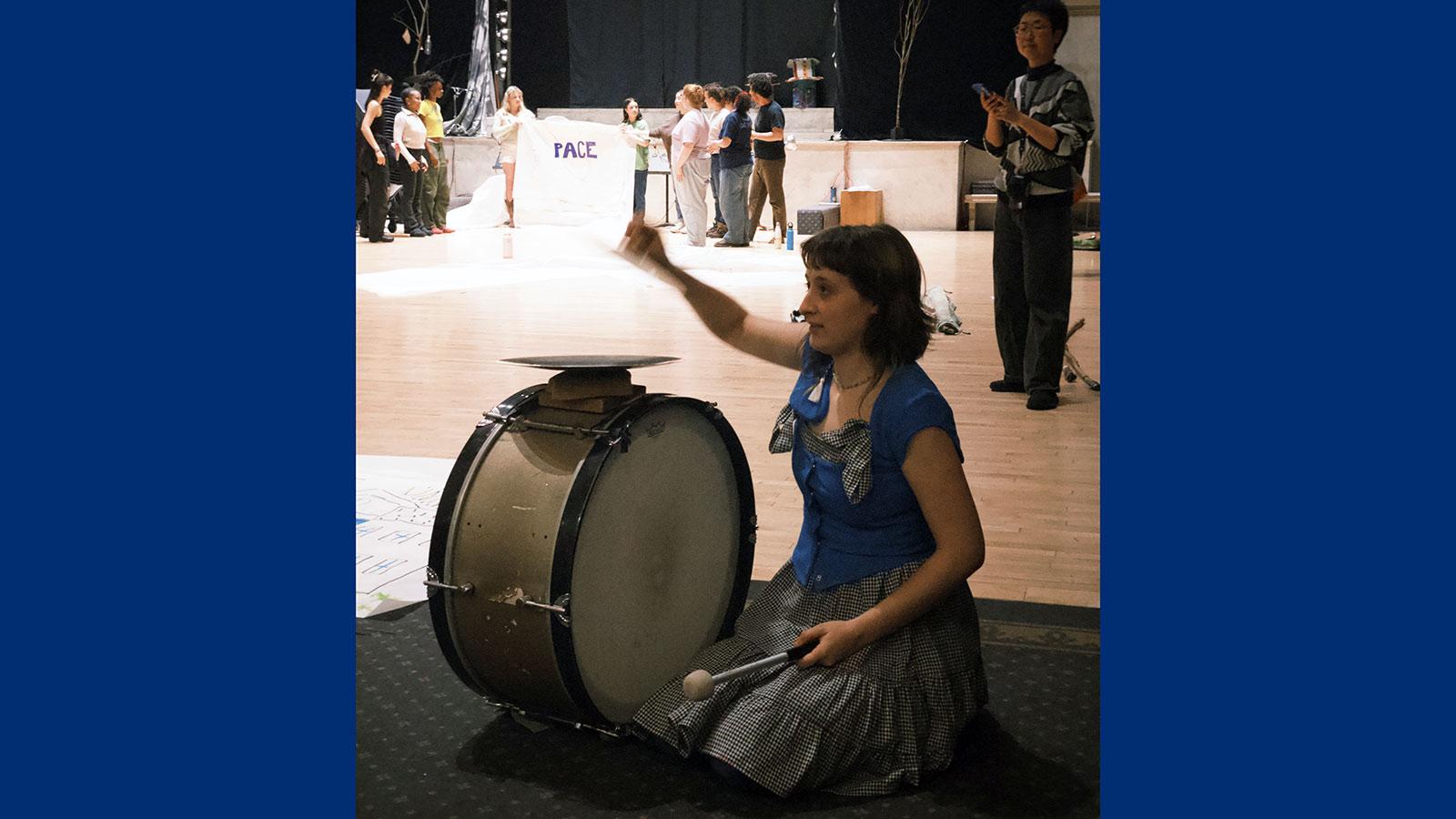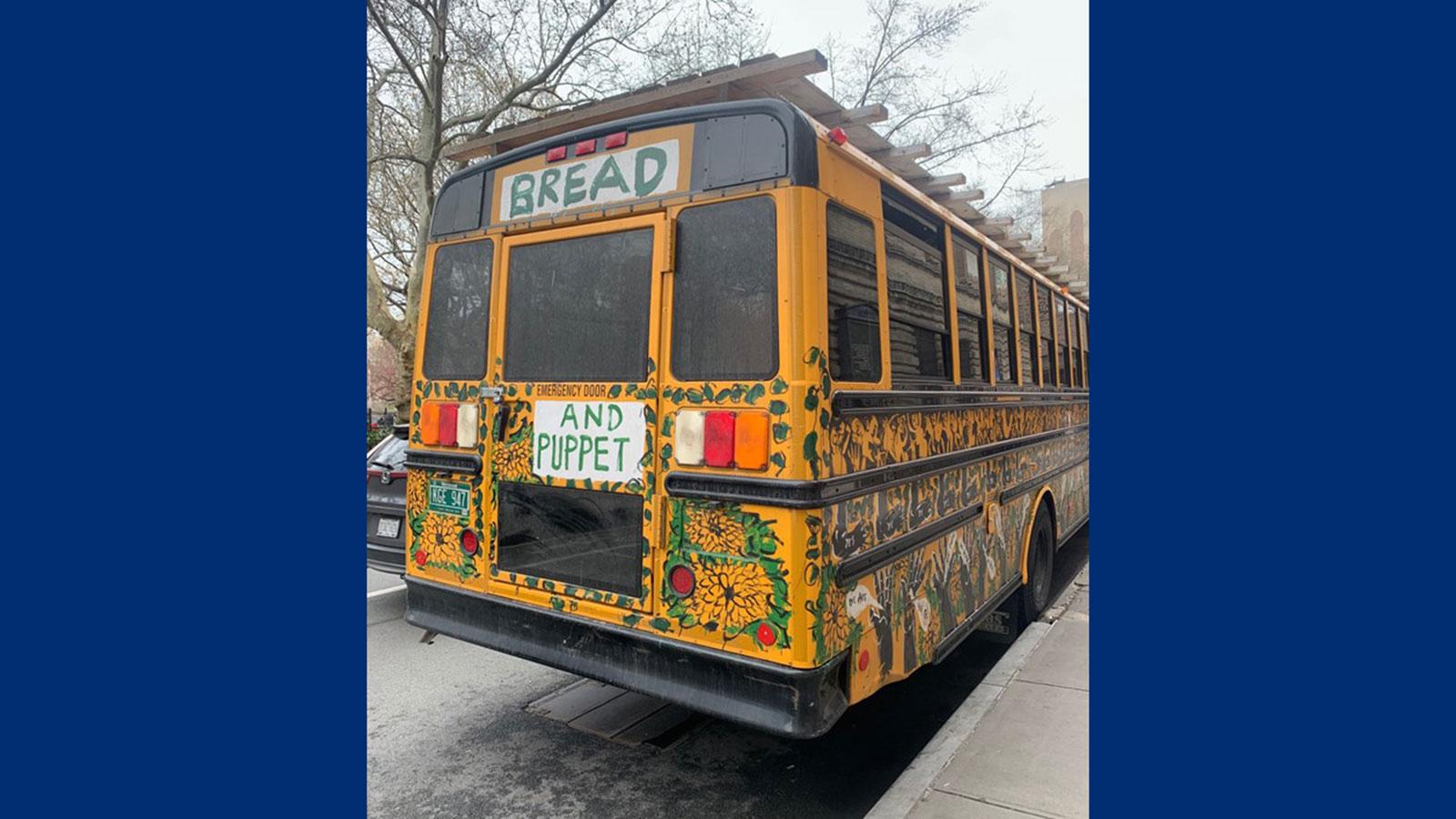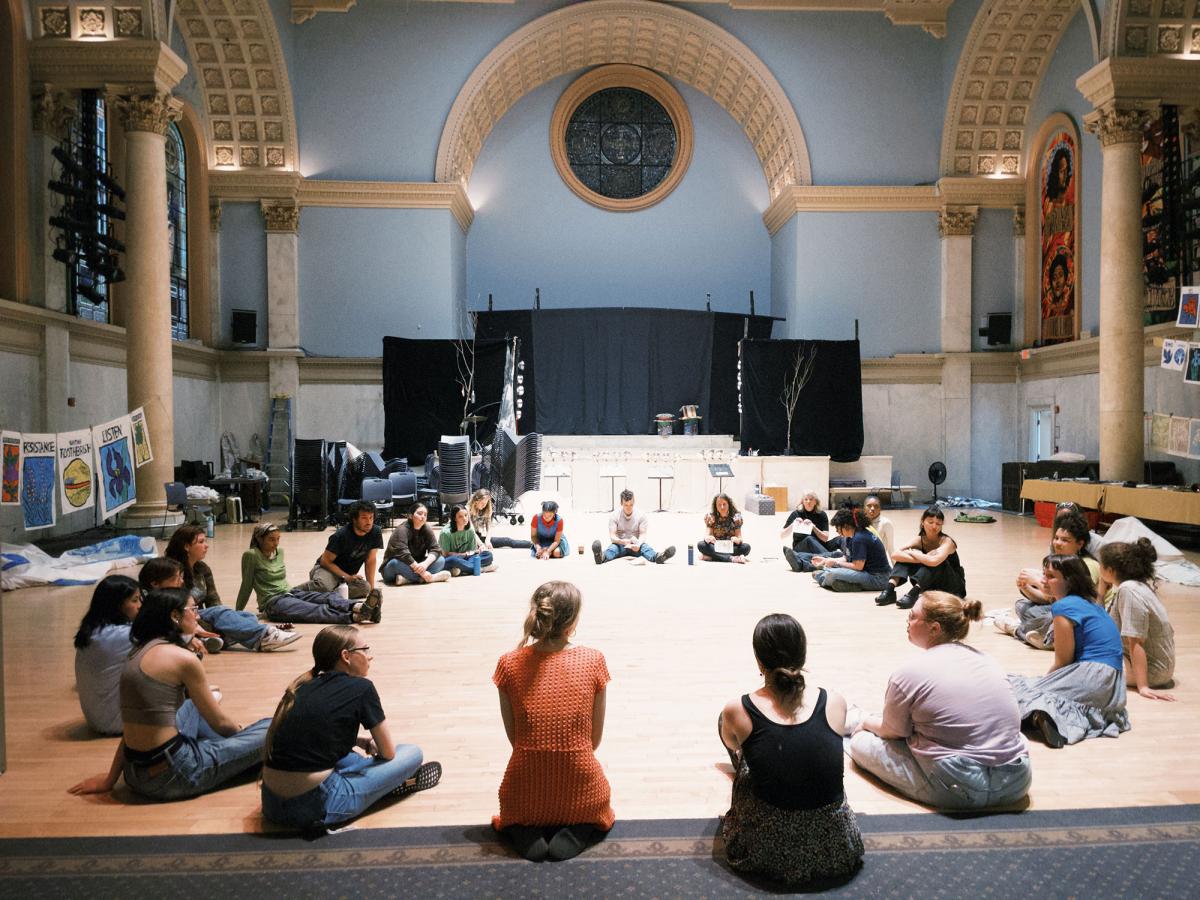
Giving Voice to Social Justice: Pace Students Partner with the Bread and Puppet Theater
In spring 2024, students from three courses, The Artist as Activist, Nonviolence: Theory and Practice, and Dramaturgy 1 engaged with the world-renowned, Vermont-based social justice theater company, Bread and Puppet, for an afternoon workshop at the Judson Memorial Church in New York City.
In small groups, and guided by a Bread and Puppet puppeteer, they wrote and performed mini cantastoria (from the Italian “canta storia,” or “sung story”), a form of street theater using song, movement, text, and puppetry that is championed by Bread and Puppet.

Timely themes such as student loan debt, mass incarceration, and the destruction of the planet were given voice and brought to life by musical instruments students learned to play, such as cymbals, bass drums, and tambourines, as well as artistic backdrops created on large sheets of white paper.
After the conclusion of the workshop, Bread and Puppet performed for a full house at Judson. Adjunct Professor Aaron Ellis, PhD, Sands College, organized and served as facilitator of a post-show discussion. It featured three members of the Bread and Puppet Theater, Professor of English Sid Ray, PhD, and Associate Professor and Chair of Peace and Justice Studies Emily Welty, PhD, faculty who, in addition to Ellis, mentored students throughout this unique opportunity.
The arts meet activism
Ellis, an activist-in-residence for the Peace and Justice Studies program in spring 2024, was a key factor in bringing the Bread and Puppet theater to Pace students, working with their colleagues to envision, plan, and facilitate the workshop as well as the post-show discussion by Ray and Welty, the subject of the latter including the overlap and role of radical arts and social justice teaching today.
It was an afternoon filled with interdisciplinary learning, growth, and collaboration. And according to Ellis, it was through this opportunity that students deeply engaged in exercising the basic muscle necessary for theater: using art, collaboration, and teamwork to address issues of great importance for our times.
Social Justice Through Expression
“Participants–even those with theater training–learned new performance traditions, skills, and ways of demonstrating their activism and advocacy through performance, in community. They learned these new skills under the strong facilitation and guidance from experts in the field and tried and succeeded in creating new things, supported by, and supporting their peers,” they said.
Aja Ammeen ’26, Peace and Justice Studies, was one of the students enrolled in this workshop. “I learned how to incorporate other forms of art into activism and how to share it with others without over complicating the performance or message. Overall, the experience was wonderful, and it's something I love to reminisce about,” she said.
Funding for experiential learning at Pace
An example of experiential learning at Pace that builds on classroom experience yet is both outside a traditional civic engagement course and involves faculty engagement, this workshop was one of nine projects funded to date by Dyson’s Experiential Learning Innovation Fund.
The goal of the fund is to advance efforts to build the Pace community internally and differentiate it as a leader in experiential education. And Kelley Kreitz, PhD, director of experiential learning and the Pace Path, is pleased to witness the fund’s mission come to fruition through this opportunity.
She said, “Experiential learning at Pace empowers students to learn in and with our communities in New York City and the Lower Hudson Valley and to become makers of the world in which they want to live.”
